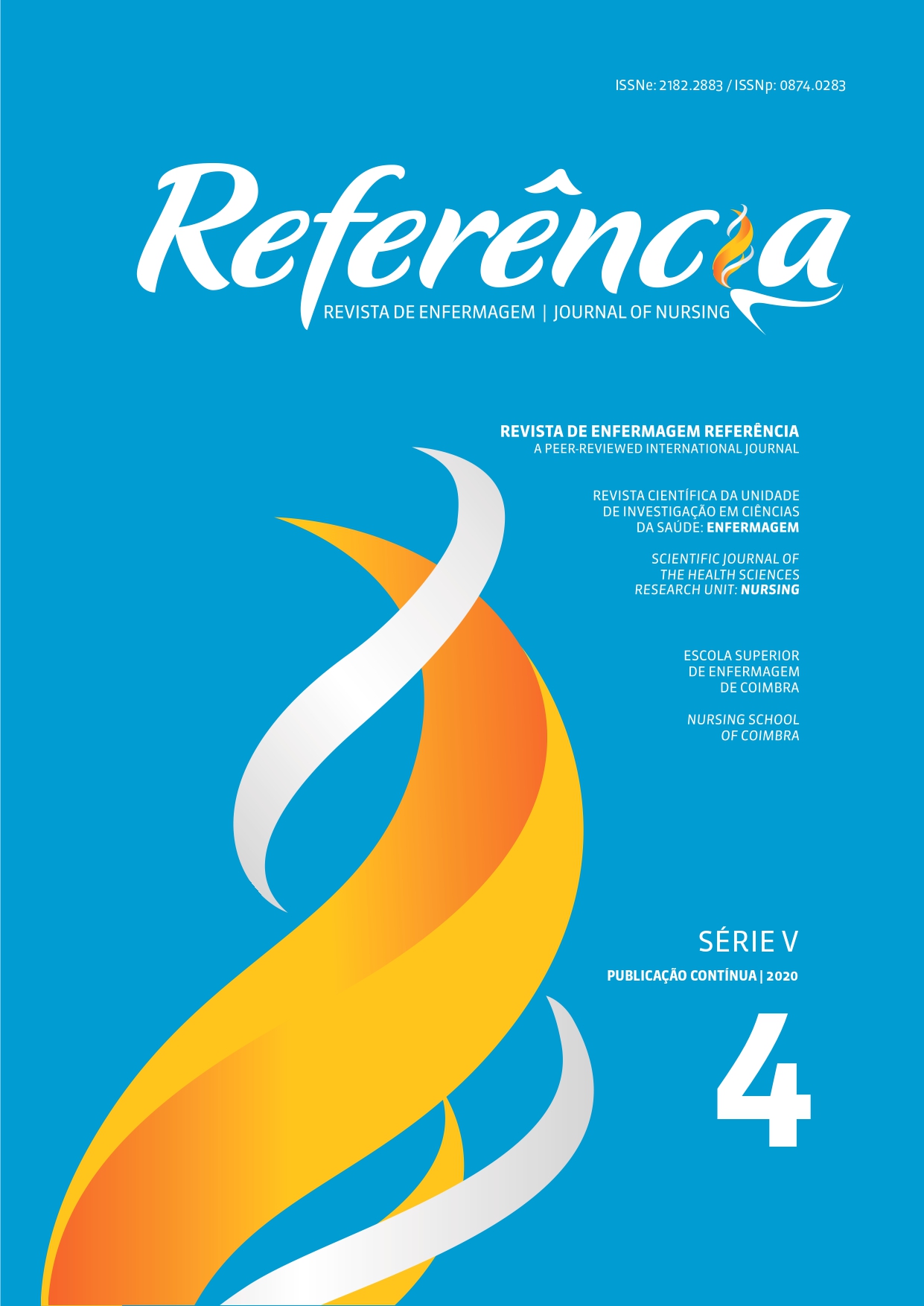Acceptance of an mHealth program for obesity prevention in adolescents: mixed sequential study
DOI:
https://doi.org/10.12707/RV20039Keywords:
obesity, adolescent, eHealth, school healthAbstract
Background: The health area has been adapting to the use of technology, using it as an important ally in programs for monitoring and preventing obesity and associated problems.
Objective: To assess the acceptance of the TeenPower e-therapeutic program in adolescents.
Methodology: Sequential mixed-method study with 47 students in grades 6, 7, and 8 in Portugal. In the first phase, data were collected through a questionnaire consisting of sociodemographic data, acceptance questionnaire, food choices, body image (dis)satisfaction, lifestyle profile, and eHealth literacy. The second phase included an interactive online session with a discussion forum, followed by Bardin’s content analysis.
Results: The acceptance of the TeenPower program by adolescents had a positive mean score in the 4 factors assessed on the scale. eHealth literacy was also positively associated with the perceived usefulness of the TeenPower program.
Conclusion: The successful acceptance of e-therapeutic programs can lead to innovation and improvement in obesity prevention, thus providing an effective response to the adolescents’ expectations and needs.
Downloads
References
Bardin, L. (2016). Análise de conteúdo. São Paulo, Brasil: Edições 70.
Castro, J. M., & Rezende, S. F. (2018). Validade e confiabilidade de estudos de casos qualitativos em gestão publicados em periódicos nacionais. Revista Organizações em Contexto, 14(28), 29-52. doi:10.15603/1982-8756/ROC.V14N28P29-52
Champion, K. E., Parmenter, B., McGowan, C., Spring, B., Wafford, Q. E., Gardner, L. A., … Mewton, L. (2019). Effectiveness of school-based eHealth interventions to prevent multiple lifestyle risk behaviours among adolescents: A systematic review and meta-analysis. The Lancet Digital Health, 1(5), e206–e221. doi:10.1016/S2589-7500(19)30088-3
Coelho, E. M., Padez, C., Moreira, P., Rosado, V., & Mourão-Carvalhal, I. (2013). BMI and self-perceived body shape in Portuguese children. Revista de Psicologia Del Deporte, 22(2), 371–376. Recuperado de https://www.redalyc.org/articulo.oa?id=235128058006
Franco-Aguilar, A., Alzate-Yepes, T., Granda-Restrepo, D. M., Hincapié-Herrera, L. M., & Muñoz-Ramírez, L. M. (2018). Validación de material educativo del programa “Niñ@s en Movimiento” para el tratamiento de la obesidad infantil. Revista Facultad Nacional de Salud Pública, 36(3), 110–120. doi:10.17533/udea.rfnsp.v36n3a11
Inchley, J., Currie, D., Budisavljevic, S., Torsheim, T., Jåstad, A., Cosma, A., … Már Arnarsson, Á. (Eds.). (2018). Spotlight on adolescent health and well-being: Findings from the 2017/2018 health behaviour in school-aged children (HBSC) survey in Europe and Canada: International report. Recuperado de https://www.euro.who.int/__data/assets/pdf_file/0006/442959/Spotlight-on-adolescent-health-and-well-being-HBSC-survey-summary-eng.pdf
Jeon, E., & Park, H. A. (2015). Factors affecting acceptance of smartphone application for management of obesity. Healthcare Informatics Research, 21(2), 74–82. doi:10.4258/hir.2015.21.2.74
Kim, J., & Park, H. A. (2012). Development of a health information technology acceptance model using consumers’ health behavior intention. Journal of Medical Internet Research, 14(5), e133. doi:10.2196/jmir.2143
Lopes, C., Torres, D., Oliveira, A., Severo, M., Alarcão, V., Guiomar, S., … Ramos, E. (2017). Inquérito alimentar nacional e de atividade física, IAN-AF 2015-2016. Recuperado de https://ian-af.up.pt/sites/default/files/IAN-AF%20Relatorio%20Metodol%C3%B3gico.pdf
Mateo, G. F., Granado-Font, E., Ferré-Grau, C., & Montaña-Carreras, X. (2015). Mobile phone apps to promote weight loss and increase physical activity: A systematic review and meta-analysis. Journal of Medical Internet Research, 17(11), e253. doi:10.2196/jmir.4836
Norman, C. D., & Skinner, H. A. (2006). eHeals: The eHealth literacy scale. Journal of Medical Internet Research, 8(4), e27. doi:10.2196/jmir.8.4.e27
Nunes, A., Limpo, T., & Castro, S. L. (2019). Individual factors that influence the acceptance of mobile health apps: The role of age, gender, and personality traits. In Bamidis P., Ziefle M., Maciaszek L. (Eds.), Communications in computer and information science (Vol. 982, pp. 167–179). Cham, Suíça: Springer Verlag. doi:10.1007/978-3-030-15736-4_9
Pan, A., & Zhao, F. (2018). User acceptance factors for mhealth. In Kurosu M. (Eds.), Lecture notes in computer science (Vol. 10902, pp. 173–184). Cham, Suíça: Springer Verlag. doi:10.1007/978-3-319-91244-8_14
Pereira, C. M., Silva, A. L., & Sá, M. I. (2015). Fatores que influenciam os comportamentos alimentares: Questionário das escolhas alimentares dos adolescentes. Psicologia, Saúde & Doenças, 16(3), 421–438. Recuperado de https://www.redalyc.org/articulo.oa?id=36244846012
Reis, C., Pernencar, C., Carvalho, M., Fragata, N., Martinho, R., Alves, R., & Morais, T. (2019). Gamificação na plataforma mHealth teenpower. In P. M. Sousa (Ed.), Teenpower: Tecnologia & inovação na promoção de comportamentos saudáveis em adolescentes (pp. 93–112). Recuperado de https://teenpower.ipleiria.pt/files/2019/05/TeenPower-Livro-12_4_2019_FINAL.pdf
Sousa, P., Duarte, E., Ferreira, R., Esperança, A., Frontini, R., Santos-Rocha, R., … Marques, N. (2019). An mHealth intervention programme to promote healthy behaviours and prevent adolescente obesity (TeenPower): A study protocol. Journal of Advanced Nursing, 75(3), 683–691. doi:10.1111/jan.13905
Sousa, P., Gaspar, P., Fonseca, H., Hendricks, C., & Murdaugh, C. (2015). Health promoting behaviors in adolescence: Validation of the Portuguese version of the Adolescent Lifestyle Profile. Jornal de Pediatria, 91(4), 358–365. doi:10.1016/j.jped.2014.09.005
Stunkard, A. J., Sørensen, T., & Schulsinger, F. (1983). Use of the danish adoption register for the study of obesity and thinness. Research Publications: Association for Research in Nervous and Mental Disease, 60, 115–120.
Tomás, C., Queirós, P., & Ferreira, T. (2014). Análise das propriedades psicométricas da versão portuguesa de um instrumento de avaliação de e-literacia em saúde. Revista de Enfermagem Referência, 4(2), 19–28. doi:10.12707/RIV14004
Wu, J. H., Wang, S. C., & Lin, L. M. (2007). Mobile computing acceptance factors in the healthcare industry: A structural equation model. International Journal of Medical Informatics, 76(1), 66–77. doi:10.1016/j.ijmedinf.2006.06.006






















